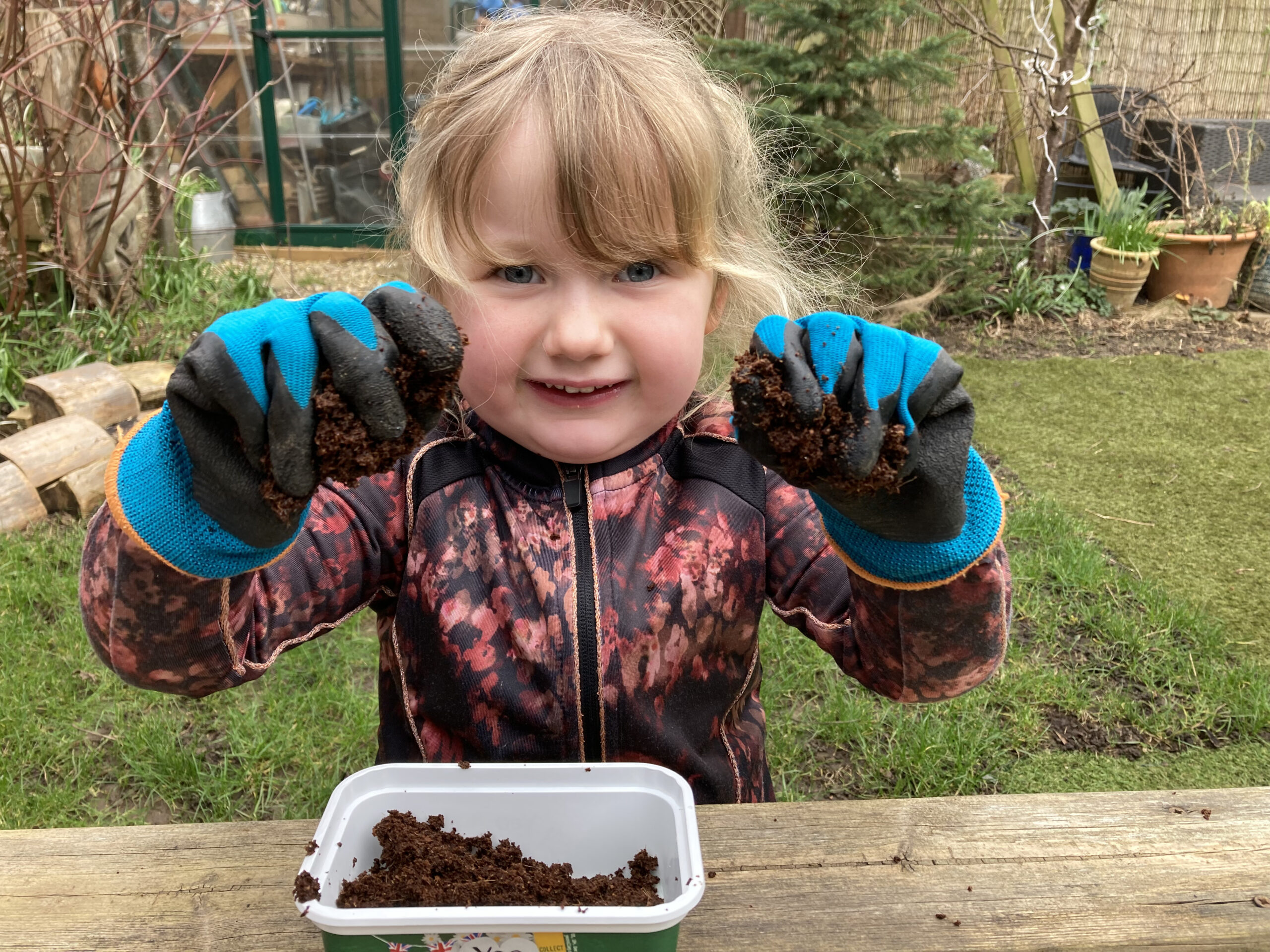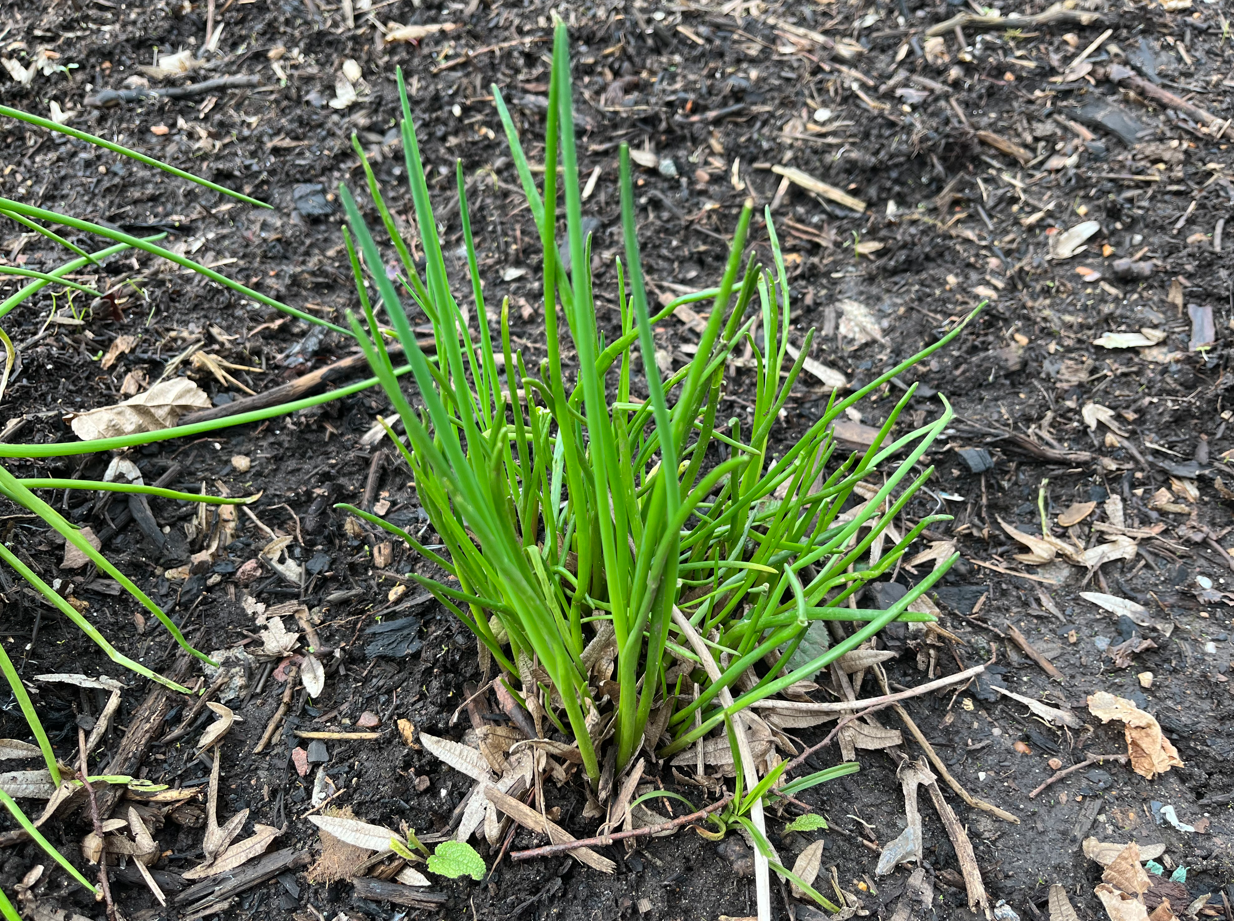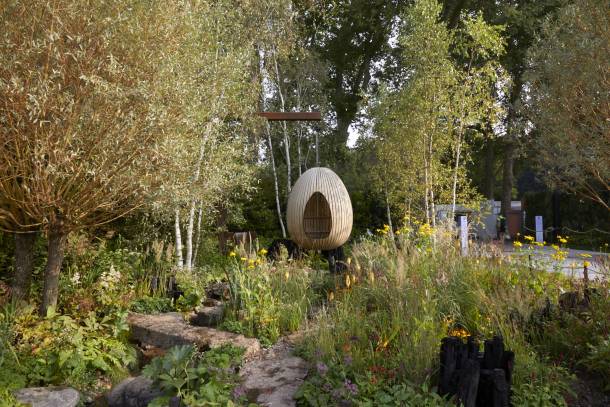Monday 15th April 2024
This spring, grow your own herbs using Garden Organic seeds available on special packs on Yeo Valley Organic Spreadable. There are three to collect with special packs of Yeo Valley Organic Spreadable packs including basil, thyme and chive.
How to grow chives
Chives are a fuss-free addition to any garden, providing aromatic leaves that can be snipped into scrambled eggs, salads, baked potatoes and much more. Chives are a perennial herb, which means you’ll be able to crop them year-after-year – and they produce edible purple flowers that are a good source of pollen and nectar for beneficial insects.

When to sow
Sow chive seed indoors March or April in small pots with drainage holes in the bottom, filled with peat-free seed compost. You could start them off in your Yeo Valley Organic Spreadable tub. Cover with a thin layer of compost and water from below by sitting the pots in a saucer or tray of water. Place on a warm, bright windowsill and watch for the grass-like seedlings to emerge. They take 10-20 days to germinate.
When to transplant
You can grow on in your tub for a few weeks, but they will need planting out once they become too big for the tub. Plant out into the garden, or into a container, in May, once they’re 10cm high, and all risk of frost has passed. Choose moist soil in a sunny site.
Alternatively, sow direct outdoors in April in containers or raised veg beds at 0.5cm deep. Thin or transplant seedlings to 25cm apart.
You can also dig up and split established chive plants in autumn to make more plants.

When to harvest
Harvest from June to October when the plants reach around 15cm tall. Snip leaves regularly, leaving around 5cm at the base, and more will grow to replace them.
Tips for success
Young chive plants like a little water and a mulch of homemade compost in dry weather in their first summer – but after this they need very little attention.
Remove flowering stems to increase leaf production, and after the flowers die back, you can cut the plant right back to the base to encourage new shoots in spring.
Pests and diseases
Chives are robust little plants, which rarely get any problems. They can be susceptible to leek rust, which causes orange spots on the leaves. To avoid this, don’t overcrowd the plants, avoid watering the leaves or grow in high humidity. Remove and destroy any leaves that are affected.
Seed saving
Black seeds will become visible as the flowerheads dry and turn brown. Pop the snipped flower stalks into a paper bag, leave somewhere dry and allow the seed to drop out or simply rub the dried seeds off the plants. Place on a tray for a week to dry fully, then label and store in a cool place. Use within two to three years.
Jargon buster
Perennial: These are long-lived plants that grow for more than two years. Herbaceous perennials will die back in winter and have a new flush of growth in spring.
For more organic growing advice, head to Garden Organic’s website at gardenorganic.org.uk, where you can also become a member of the charity.




